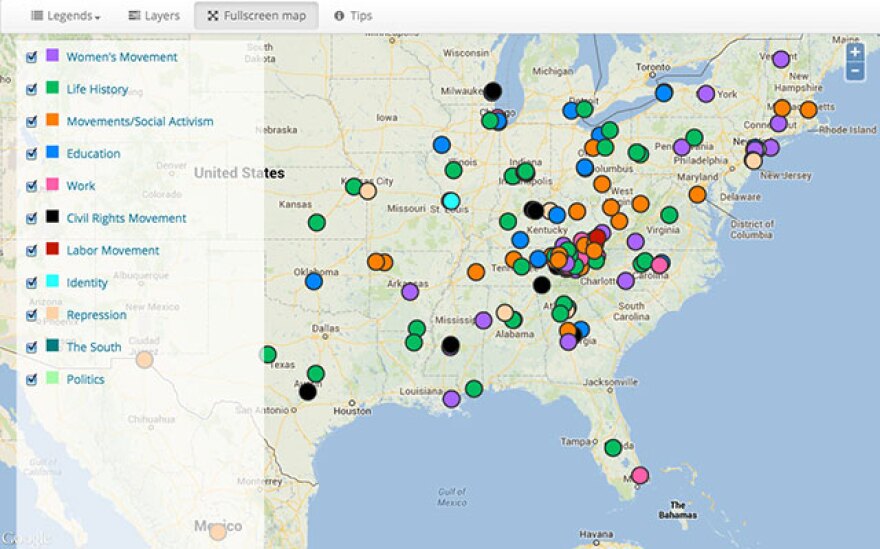Researchers at the University of North Carolina at Chapel Hill have developed an easy-to-use website-building tool that puts previously complex digital programming into the hands of historians and researchers. The new tool, called the Digital Humanities Toolkit or DH Press, provides a way for historians, researchers, teachers and others to create interactive websites, virtual tours, data maps and multimedia archives with a WordPress platform. It also organizes data in more easily searchable and intuitive ways, such as mapping. UNC-Chapel Hill’s Digital Innovation Lab (DIL) and its Renaissance Computing Institute (RENCI) collaborated on the new tool.
“I want to emphasize the uniqueness of this collaboration,” says Dr. Pam Lach, DIL manager and DH Press project manager. “RENCI represents this very strong computing world. We in the DIL represent the humanities. It’s really intended for non-technical users to do these digital humanities projects.”
UNC’s Southern Oral History Program created a pilot project with DH Press and called it “Mapping the Long Women’s Movement.” It places the oral histories of hundreds of individuals onto a US map and allows users to search through the audio files with key words and themes to find stories more easily.
“It makes it much simpler to explore audio interviews,” says RENCI communications director Karen Green. “Rather than sit through an hour-long audio interview to listen for a specific word, or search the transcript, you can easily search for a specific audio segment.”
DH Press is already being used by researchers and teachers around the world, with projects underway in Rome, Glasgow and South Carolina. Dr. Lach hopes that DH Press will give historians, teachers, researchers and others who might not be well-versed in computer programming or GIS a way to create complex maps with their data.
The Digital Innovation Lab made this video to demonstrate what it’s possible to create with DH Press:
http://vimeo.com/70490275







